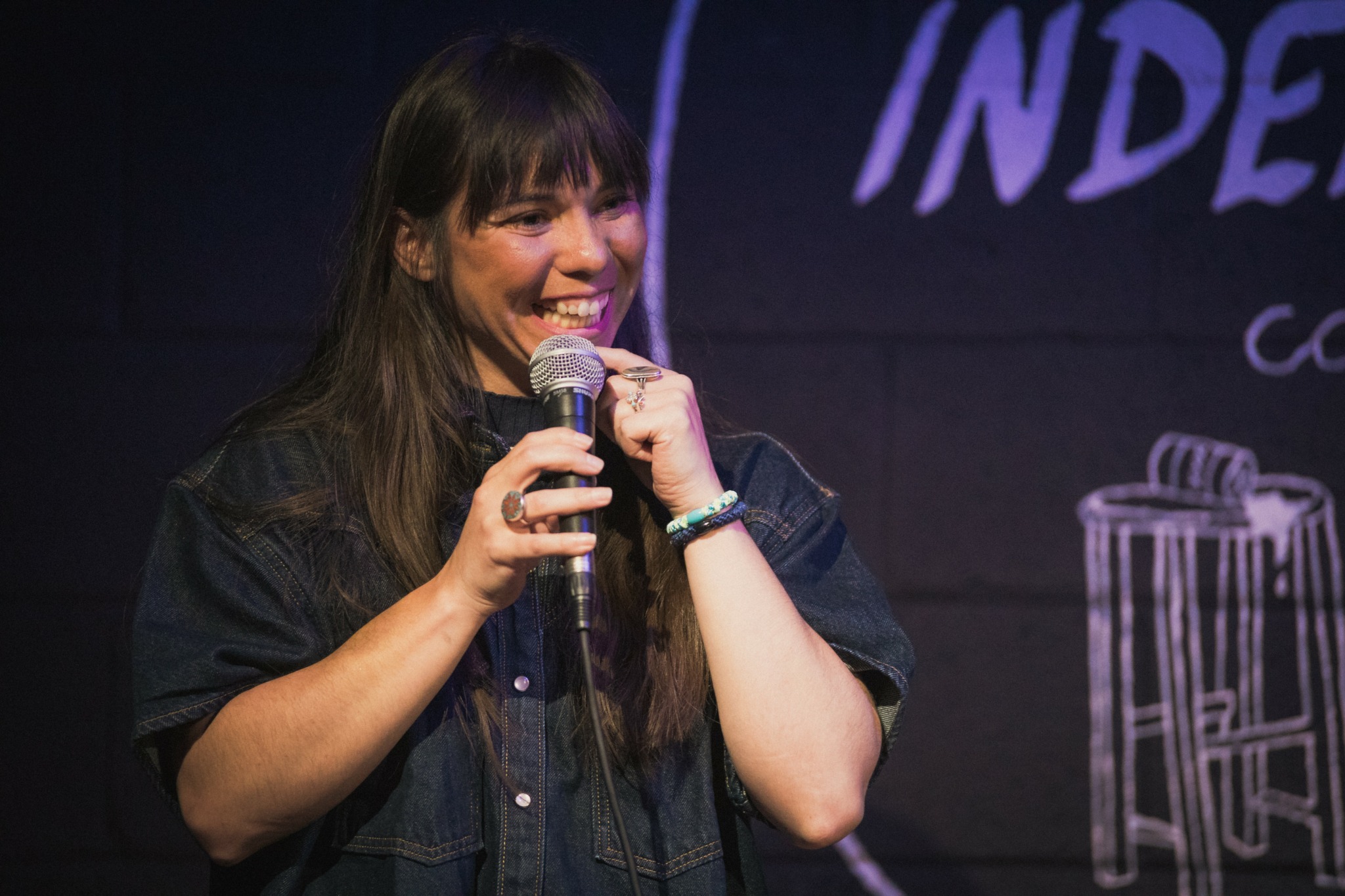We recently connected with Julianna Loera-wiggins and have shared our conversation below.
Julianna, appreciate you joining us today. We’d love to hear about a project that you’ve worked on that’s meant a lot to you.
I have found the most meaningful projects to be ones that bring stand-up comedians to college campuses and bridge the gap between accessing institutional resources and finding joy where you may live, learn, teach, and work.
Possibly the most meaningful project I have worked on is bringing Latina stand-up comedians who are mis amigas and súper talentosas to perform at the University of Michigan for a Latina comedy night, “Chistes con las Chingonas of Chicago.” Only 7% of the University of Michigan student population is Latinx, and exclusively Latinx spaces are difficult to find- and take a lot of time and resources to create.
With the help of a few campus departments and programs, I produced a wildly successful evening of Latina/x comedy. I remember walking on stage to begin my hosting and introduction for the show, and seeing people spilling into the theater and cramming themselves in the aisles took my breath away.
After the show me and several of the other comedians received direct messages from Latinx students begging us to come back, saying they have never felt so seen, and sharing how difficult it is to be a student of color on campus. I have had the same feelings as these students. As a Mexican American graduate student trying to navigate my own studies in a predominantly white institution, I often slip into thinking that there just aren’t enough of us. But, “Chistes con las Chingonas” gave a light of inspiration and significance to the student of color experience at the University of Michigan.
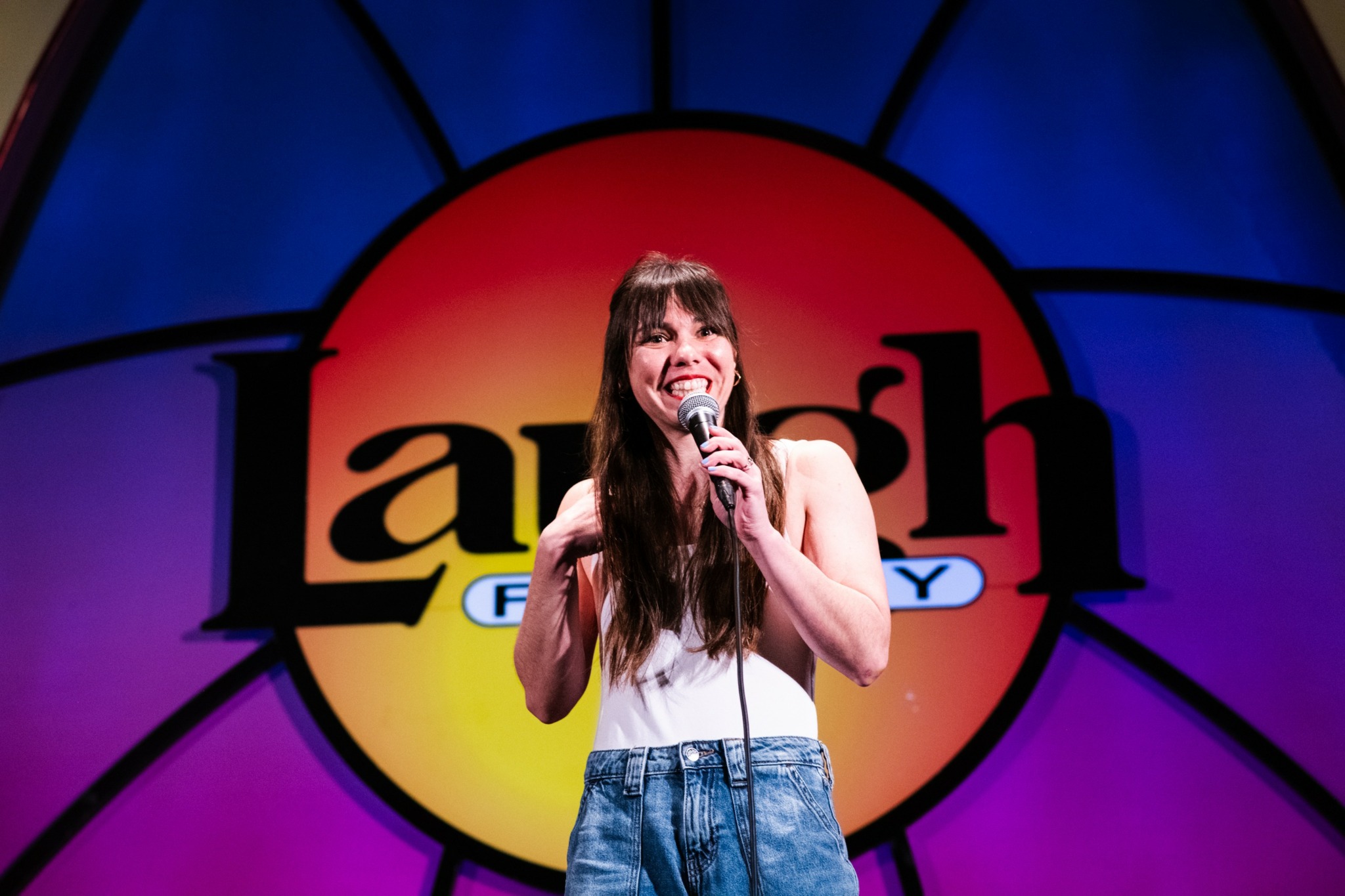
As always, we appreciate you sharing your insights and we’ve got a few more questions for you, but before we get to all of that can you take a minute to introduce yourself and give our readers some of your back background and context?
I am a PhD candidate in the Department of American Culture, Program of Latina/o Studies, and Center for World Performance Studies at the University of Michigan.
I am currently writing my dissertation about Chicana/Latina stand-up comedy. I primarily look at how humor functions as a unique tool of resistance against colonial understandings and manifestations of gender.
I am also a Chicana stand-up comedian! A lot of my performing material is about growing up in a large Mexican American and Italian American household.
My dissertation explores the intersections of race, gender, and sexuality and how those meet to form a feminist politic which builds on the formation of consciousness and self-knowing.
So, I engage with multiple disciplines to answer my research questions: My own performing experiences, a bit of Chicana/Latina feminisms, some anthropology, and a dash of interviews form my understanding of how humor and comedy disrupts expectations of what a Latina looks like, acts like, and moves and sounds like.
Currently, I am writing a chapter about the longest running Latina stand-up comedy showcase based in Chicago, Las Locas Comedy. These mujeres have welcomed me with open arms, and they crack me up when we hang on and off stage. They do so many amazing things for aspiring Chicana and Latina stand-up comedians, and have given me some of my first performing credits. I encourage everyone reading to check them out! They will blow your mind!
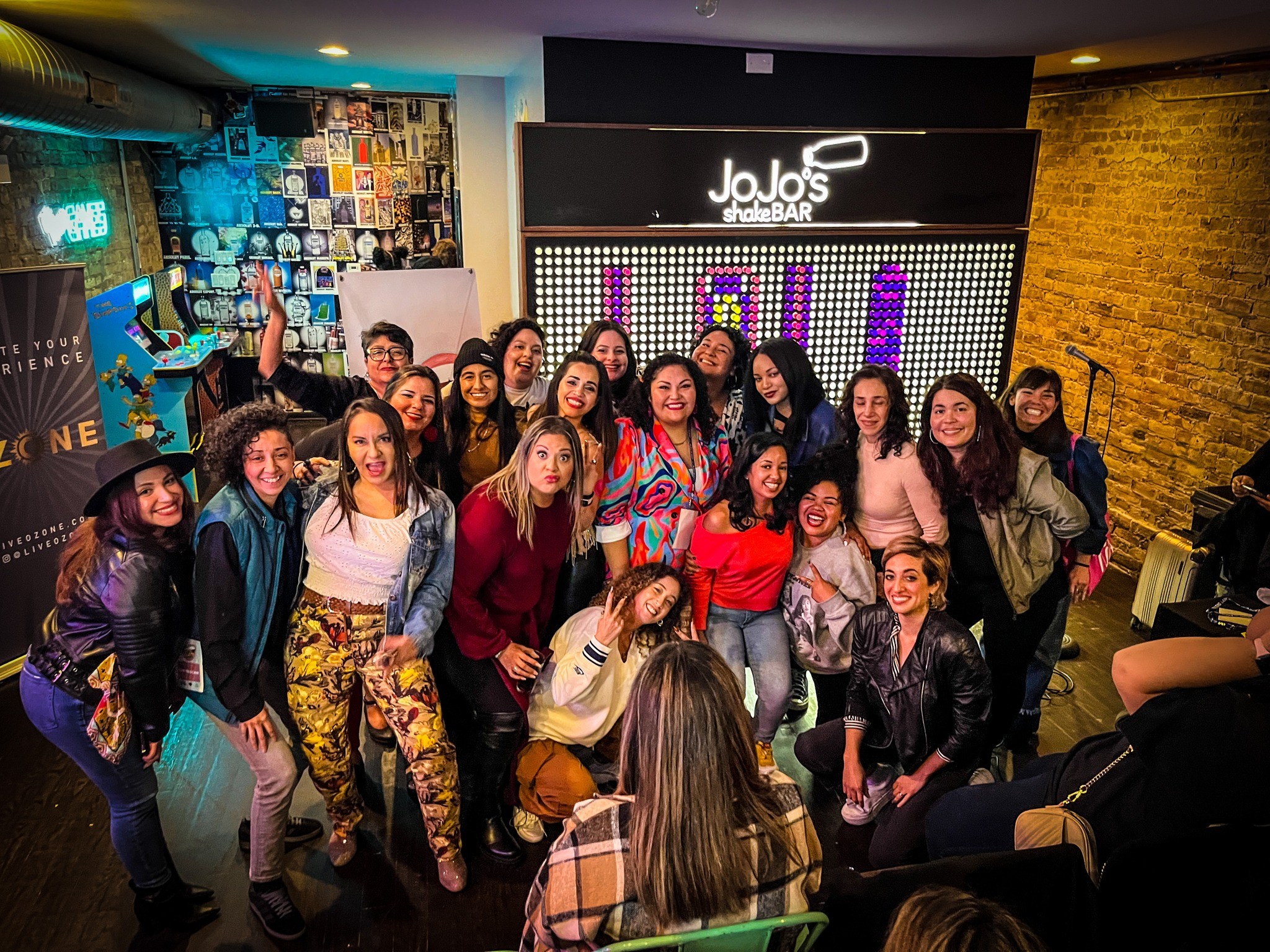
What do you think is the goal or mission that drives your creative journey?
I hope to graduate soon with my PhD, but I want to take my degree and expertise on Chicana/Latina feminist cultural production to the university classroom. At times I have to field questions along the lines of, “What makes comedy so important?” It seems like an un-serious, unacademic topic to tackle. And for all intents and purposes, it is difficult to theorize within the histories (and her-stories) of racial formation.
However, it is the way that stand-up comedy can be a tool to respond to tensions, conflicts, and our current time which affect the way we can move safely in the world. I don’t necessarily see stand-up comedy as a tool for liberation (though there is always the possibility that it certainly feels liberating to tell one’s story), but I do understand and perform it as a method of informing audiences how our current political climate affects the choices I make about my body, my career, and my personal life.
For example, the overturn of Roe vs. Wade, former president Donald Trump’s inflammatory remarks toward Latinxs and immigrants, and attending a predominantly white institution where little Spanish is spoken and few people look like me are all things that make me think, “Wow, the world is making me feel a bit crazy today.”
I would love to teach classes about Chicanx and Latinx humor, and have students write their own material to perform one day!
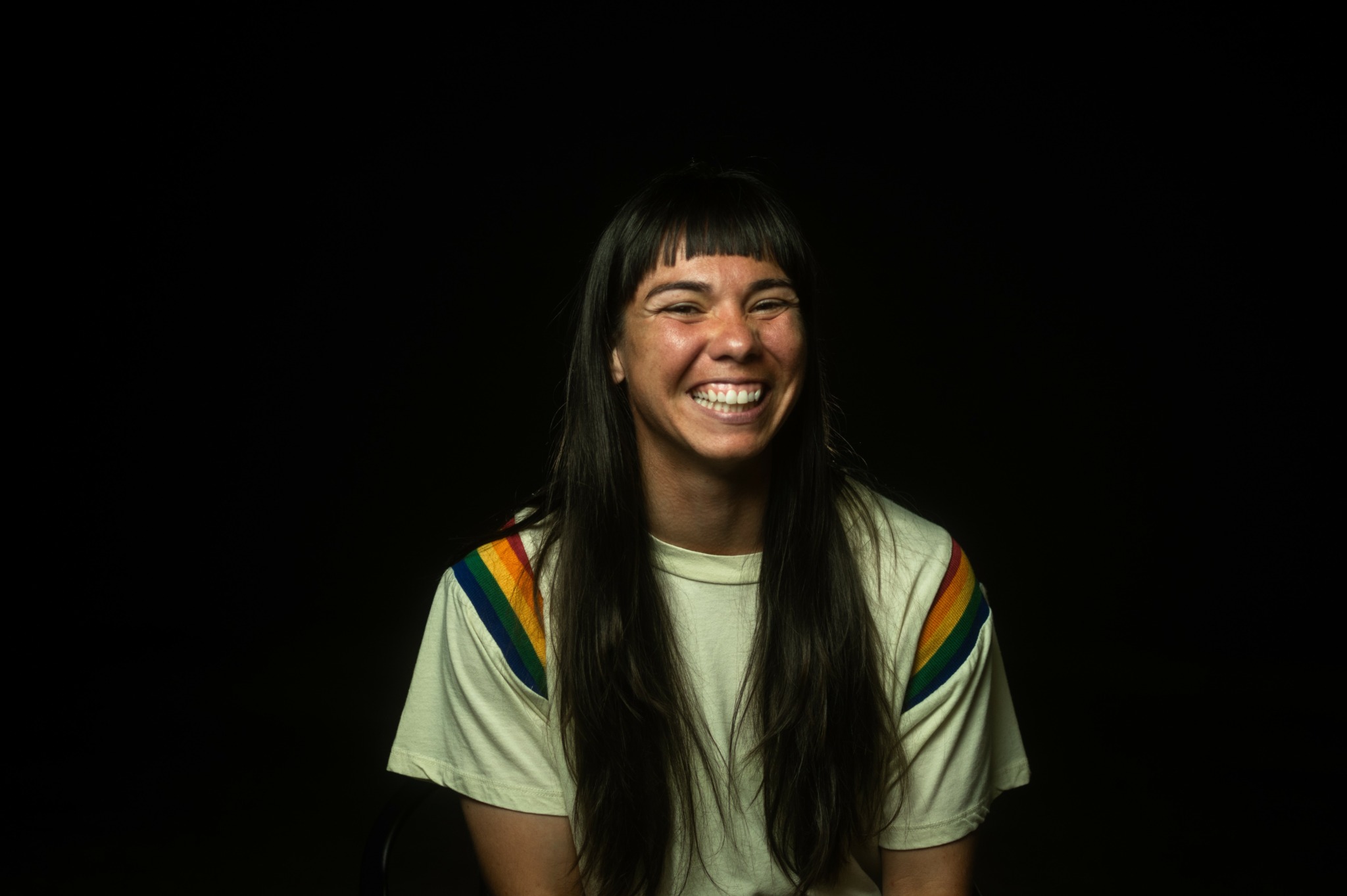
What’s the most rewarding aspect of being a creative in your experience?
For me, one of the most rewarding aspects of being a stand-up comedian AND academic is learning that most people I encounter at a showcase or open mic or in the hallways at the university are huge comedy fans. Folks always recommend I check out certain comedy specials or albums, and I hope that one day when my dissertation is completed that I catch up on all of these recommendations!
Contact Info:
- Instagram: @_mucusgracias
- Other: For lectures, speaking engagements, and bookings, please email:
[email protected]
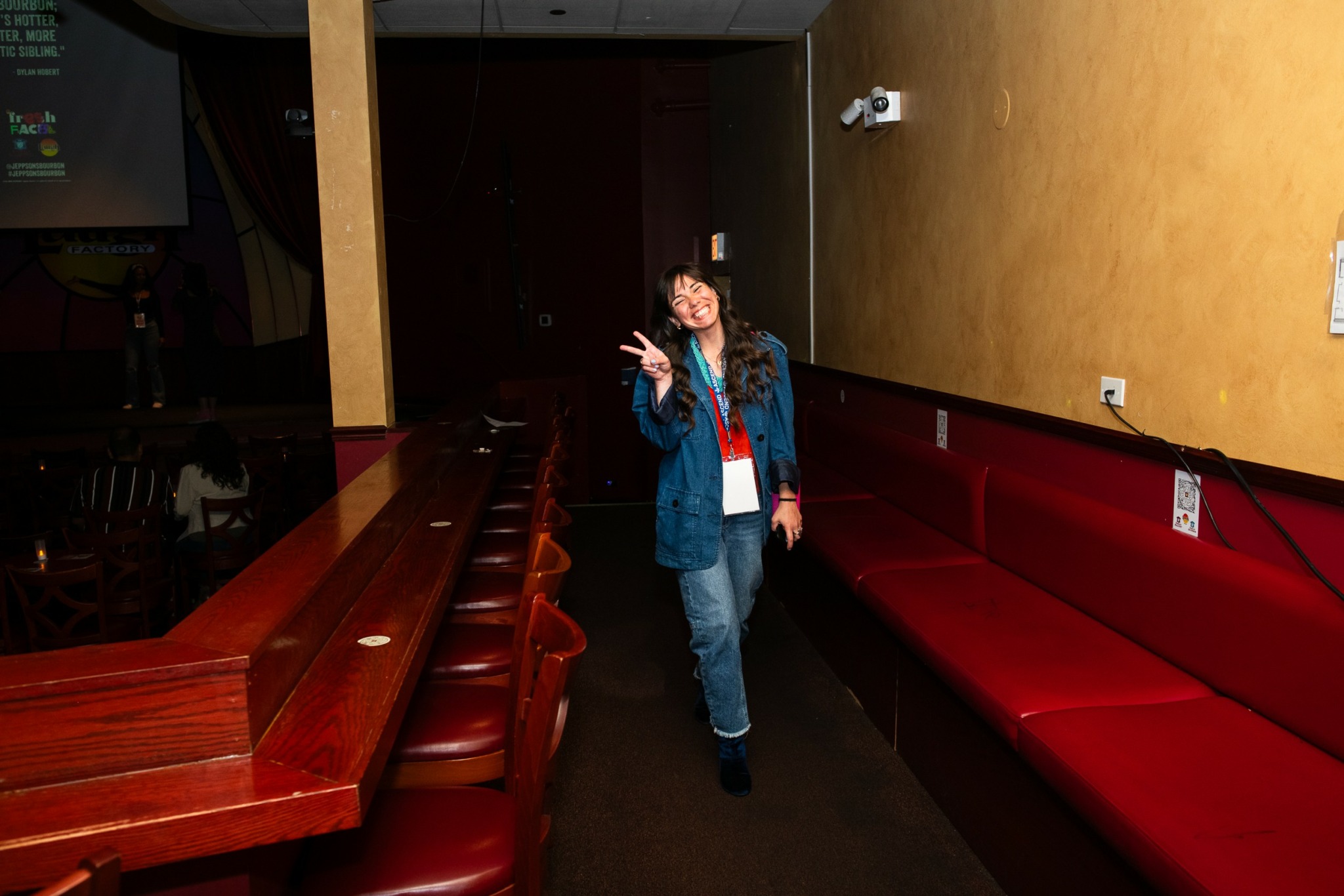
Image Credits
ANF Chicago
Libby O


